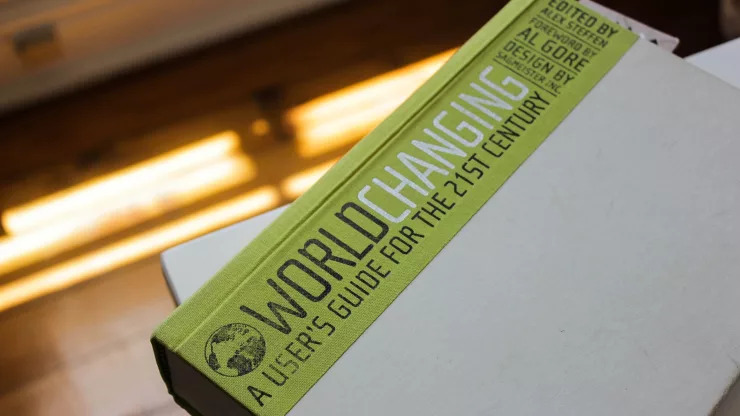The Importance of Career Mapping
As a customer success professional, you may have already achieved some level of success in your career. However, it is important to always keep your eye on the next step.
Career mapping is a crucial tool for achieving your career goals and objectives.
It allows you to chart a course for your career, identify your strengths and weaknesses, and develop key skills and competencies needed to succeed in your chosen field.
Career mapping is not just about getting to the next level, but also about finding fulfillment and satisfaction in your work.
By mapping out your career steps, you can ensure that you are moving in a direction that aligns with your values, interests, and passions.
It also helps you to stay focused and motivated, even during challenging times.
Jump to Section
Understanding the Customer Success Landscape
To map out your career steps in customer success, it is important to have a good understanding of the industry landscape. Customer success is a relatively new field, and it is constantly evolving.
It encompasses a wide range of roles, including customer success managers, account managers, customer support specialists, and more.
To succeed in customer success, you need to have a deep understanding of your customers’ needs and expectations, as well as the products and services you are offering. You also need to be able to build strong relationships with customers, communicate effectively, and be a problem solver.
Identifying Your Strengths and Weaknesses
Before you can map out your career steps, you need to take a close look at your own strengths and weaknesses. This will help you to identify areas where you need to improve, as well as areas where you excel.
Start by making a list of your skills, experience, and achievements. Then, ask yourself what you enjoy doing most and where you feel you have the most impact.
This will help you to identify your areas of strength.
Next, think about areas where you could improve. This might include developing your communication skills, becoming more proficient with certain software tools, or learning more about a particular industry or market.
Setting Career Goals and Objectives
Once you have a good understanding of your own strengths and weaknesses, it’s time to set some career goals and objectives. Your goals should be specific, measurable, achievable, relevant, and time-bound.
For example, you might set a goal to become a senior customer success manager within the next five years. To achieve this goal, you would need to identify the skills and experience required for this role and create a plan to acquire them.
Remember, your career goals should be aligned with your personal values and interests. This will help you to stay motivated and focused on achieving your objectives.
Developing Key Skills and Competencies
To succeed in customer success, there are several key skills and competencies you will need to develop. These include:
- Communication skills: You need to be able to articulate complex ideas and build strong relationships with customers.
- Problem-solving skills: Customers will turn to you for solutions to their problems, so you need to be able to think creatively and find effective solutions.
- Technical skills: You need to be proficient with the software tools and platforms used by your company and your customers.
- Industry knowledge: You need to have a deep understanding of your customers’ industries and markets, as well as the products and services you are offering.
To develop these skills and competencies, you may need to take courses, attend conferences, or seek out mentorship and coaching.
Networking and Building Relationships
Networking and building relationships are crucial for success in customer success. This can include building relationships with customers, as well as with colleagues and industry peers.
To build your network, attend industry events, participate in online forums, and connect with others on social media. Be proactive in reaching out to others and look for ways to add value to your network.
Building strong relationships with customers is also essential. This can include regular check-ins, proactive communication, and going above and beyond to meet their needs.
Navigating Career Transitions
As you progress in your career, you may need to navigate transitions, such as moving to a new company or taking on a new role. These transitions can be challenging, but they can also offer opportunities for growth and development.
To navigate career transitions successfully, it’s important to be proactive and open to new opportunities. Seek out mentorship and coaching, and be willing to take on new challenges and responsibilities.
Remember, career transitions are a natural part of any career. Embrace them as opportunities for growth and learning.
Embracing Continuous Learning and Development
Finally, to succeed in customer success, it’s important to embrace continuous learning and development. The industry is constantly evolving, and you need to stay up-to-date with the latest trends and best practices.
This can include attending conferences and workshops, reading industry publications, and seeking out mentorship and coaching. Look for opportunities to learn from others and to share your own experiences and knowledge.
Remember, learning is a lifelong process. Embrace it as a way to stay engaged and motivated in your career.
By mapping out your career steps in customer success, you can achieve your career goals and objectives, find fulfillment and satisfaction in your work, and stay motivated and focused on your personal values and interests.
Remember to identify your strengths and weaknesses, set specific career goals and objectives, develop key skills and competencies, build strong relationships with customers and colleagues, navigate career transitions, and embrace continuous learning and development.
With these tools and strategies, you can achieve success in customer success and beyond.
FAQ
What skills do I need to succeed in customer success?
To succeed in customer success, you will need strong communication skills, problem-solving skills, technical skills, and industry knowledge. You will also need to be able to build strong relationships with customers and colleagues.
How can I develop my customer success skills?
To develop your customer success skills, you may need to take courses, attend conferences, seek out mentorship and coaching, and participate in online forums and social media groups. Look for opportunities to learn from others and to share your own experiences and knowledge.
What should I do if I want to transition to a new role in customer success?
To transition to a new role in customer success, be proactive and open to new opportunities. Seek out mentorship and coaching, and be willing to take on new challenges and responsibilities.
Look for ways to develop the skills and competencies required for your desired role.

With a deep passion for personal development, Ben has dedicated his career to inspiring and guiding others on their journey towards self-improvement.
His love for learning and sharing knowledge about personal growth strategies, mindfulness, and goal-setting principles has led him to create My Virtual Life Coach.
Contact Ben at [email protected] for assistance.




